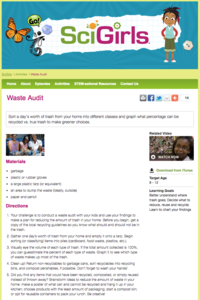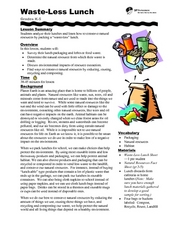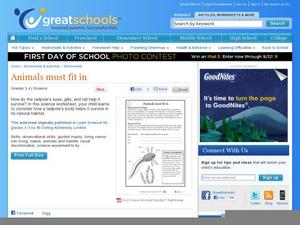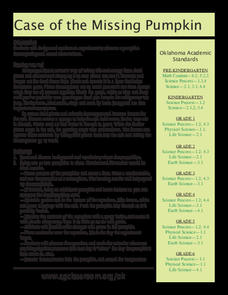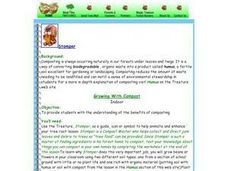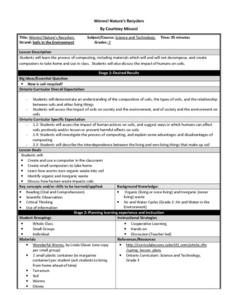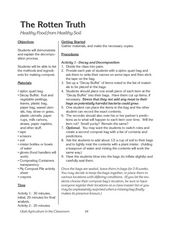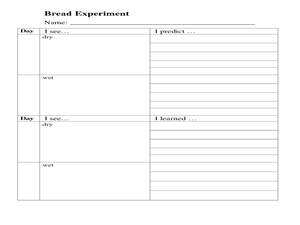Curated OER
Garbage in the Garden
Learners create their own compost. In this soil lesson, students fill a bag with waste and soil, in order to create a mini compost bin. Learners observe the baggies over a 6 week period, they record their findings and collect data...
Curated OER
Organic and Inorganic Waste
Students conduct a scientific investigation about organic or inorganic waste. In this organic or inorganic waste lesson, students create a compost heap to determine the difference between inorganic and organic waste. Students...
PBS
Waste Audit
Does everything in the trash can belong there? Conduct a waste audit with your class by collecting a day's worth of garbage, separating it into recyclables, non-recyclables, or food waste, and properly distributing what they find into...
Purdue University
Food Waste Solutions
Easy doesn't always mean better. In an era with pre-packaged everything, learners consider the environmental impact of the convenient trend. They critique the packaging of food and how waste impacts cost and then look for solutions.
SF Environment
Waste-Less Lunch
Is it possible to have a waste-less lunch? Can your class become leaders in conservation? Discuss the importance of reducing waste during lunch time with a fun lesson plan that can be extended to everyday practices. First the class...
Curated OER
Dinnertime for Animals
Is a deer an herbivore? What about a spider? Experiment with the food chain in an interactive science experiment. After listing the herbivores from a selection of animals, third and fourth graders compare the skulls and teeth of...
Curated OER
Animals Must Fit In
A instructional activity on tadpoles is here for your young biologists. Learners read a short paragraph on tadpoles, then answer three questions regarding how parts of their bodies help the tadpole to survive in the pond. There is a good...
Curated OER
Case of the Missing Pumpkin
Scientists define and discuss decomposition, and watch pumpkins decompose and return to soil in classroom experiment. They record the date the experiment began, chart changes in pumpkins on a calendar, count how many days it takes...
Curated OER
It's Just Dirt
Young scholars discover how seed germination varies according to the soil type. In this soil science lesson, students discuss what plants need in order to grow and investigate various types of soil. Young scholars use their senses to...
Curated OER
Worms! Nature's Recyclers
Third graders explore the process of composting. In this composting lesson, 3rd graders read the book Wonderful Worms, and create composters.
Curated OER
Life In the Soil: Home Sweet Home: Red Worms
For this soil worksheet, students complete 2 pages about the importance of soil in plant growth. Students read about red worms and answer 2 questions about composting. Students fill out a chart with their observations of plants planted...
Curated OER
Worm Composting: Vermiculture
Students compost in a limited space and describe the decomposing process. Students convert unwanted, organic matter, particularly food scraps and paper into fertile soil.
Curated OER
Cafeteria Compost
Students gather information on composting. They create their own compost pile using proper materials from the lunchroom. They work together to record observations.
Curated OER
Growing With Compost
Students discuss the positives and negatives of composting. They plant their own plant using composting material and record results. They create a poster for the classroom.
Curated OER
Reduce, Reuse, Recycle and Compost
Students expand their understanding of solid waste management. They examine the effects of packaging decisions. They study engineering advancements in packaging materials and solid waste management.
Curated OER
3RC (Reduce, Reuse, Recycle and Compost)
Students examine the effects of packaging decisions and the engineering advancements in packaging materials and waste management. They observe biodegradation in a model landfill.
California Academy of Science
Where Do I Put My Trash?
Where does the trash go after you put it in the garbage can? The class discusses sustainability, recycling, compost, and landfills as they play as fun relay game. In teams, they race to be the fastest group to successfully sort...
Curated OER
Worms, Nature's Recyclers!
Learners study what worms need to survive in different environments. They study how worm composting improves soil and reduce waste. They discuss composting techniques and present a puppet show about a worm's life.
Curated OER
The Rotten Truth: Healthy Food from Healthy Soil
Students investigate methods of decomposition in order to make compost. In this decomposition science lesson, students set up compost bags using food and materials which decay over time. The initial lesson is approximately 30 minutes,...
Curated OER
Sustainable Agriculture
Students perform an experiment to find out if plants grow best when grown in soil with no fertilizer, with chemical fertilizers, or with compost that they have made themselves. Students discover how agriculture practices can benefit the...
Curated OER
Forest Decomposition
Students explore decomposition. Students define and describe components of the decomposition process. Students make a composter in a terrarium. Students record observations and changes weekly, drawing conclusions about the results...
Curated OER
Worms: Nature's Recyclers
Students explore vermi-composting. In this vermi-composting instructional activity, students listen to the story Diary of a Worm and discuss the parts of a worm. They create worm bins and add organic food for the worms to...
Curated OER
Trash Disposal Choices
Students determine the differences between reusable, compostable and recyclable trash.
Curated OER
How Long Until Dirt
Third graders examine the difference between composting and wasting food. They problem-solve what to do about leftovers after lunches so good food doesn't go to waste.They study food storage techniques that are environmentally friendly...




